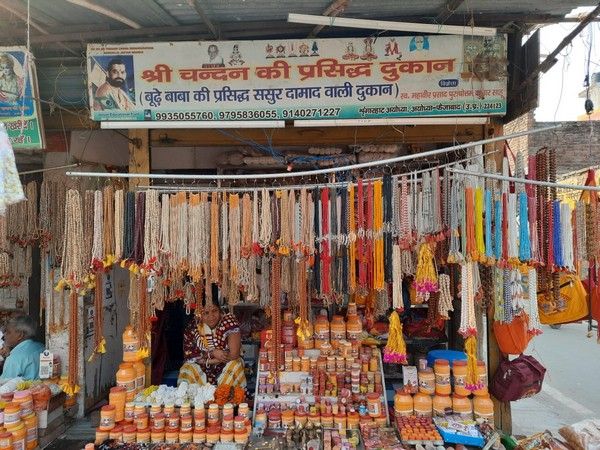Uttar Pradesh‘s Ayodhya attracts pilgrims from across the country for its
locally made sandalwood ‘Maharaja Chandan’ used for ’tilak’ in Hindu religion.
‘Maharaja Chandan,’ a locally manufactured sandalwood made
from turmeric, sandalwood, and a few other secret ingredients, is not only
auspicious in terms of its use by saints and religious people, but it is also a
major source of income for several locals who live within a 2-kilometer radius
of the ‘Ram Ki Paidi,’ ‘Ram Janmabhoomi,’ and ‘Hanumangarhi temple.’
Ayodhya also produces ‘Maharaja Chandan,’ ‘Mailkota
Chandan,’ ‘Shri Chandan,’ Ramraj Chandan, Jankiraj Chandan, and Gopiraj
Chandan.’
Geeta Sahu, one of the shopkeepers who runs a six to seven
family old shop, told ANI, “Chandan may be used in a variety of ways. People
who follow the ‘Vaishnav Sampraday’ use Mailkota chandan in particular.
Similarly, persons belonging to various’sampradays’ employ various
chandan.”
“In Ramraj chandan, the soil of Ram Janmabhoomi is
mixed. Similarly, Janakiraj and Gopiraj chandan are manufactured by using soils
of places respectively from where goddess Sita belonged to and from
Vrindavan,” Shahu said.
She said that “Maharaja Chandan is specially
manufactured in Ayodhya and it is in more in demand compared to other chandan.
Roli chandan is also in demand here as it is used as Tilak by Vaishnav
Sampraday people after putting Mailkota chandan on their forehead in almost ‘U’
shape”.
All of these sandalwood pastes are available in a
different range of price levels, starting at $200 per kilogramme.
Visit the marketplaces in Ayodhya to get a firsthand look at
the actual essence of life for sandalwood traders operating out of decades-old
stores tucked away in narrow twisting pathways along the banks of the Saryu
River.




